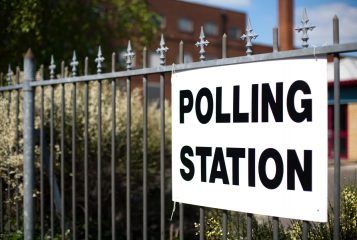‘Boris bounce’ took hold in January as landlords flooded the market
Following the General Election in December, The ValPal Network has noticed a renewed confidence in the property market.
It says the ‘Boris bounce’, combined with the traditional New Year upsurge in activity, created a very fruitful January for estate and letting agents up and down the country.
Fresh data has been gathered from the network of agents, representing over 800 brands with more than 4,000 offices. It shows that it wasn’t just buyers and tenants buoyed by increased market certainty, as there was an increase in prospective sellers and landlords also contacting agents last month.
The figures show that a total of 83,158 leads were generated by agent members from prospective sellers and landlords requesting instant online valuations during January.
This is a massive increase from the 37,400 online valuations leads generated during December.
January’s total is the highest monthly number of online valuation sales leads generated by agents since October 2018 when the figure peaked at 102,999.
The number of generated leads hovered between 40,000 and 60,000 throughout 2019, demonstrating the significance of January’s figure of almost 85,000.
On an annual basis, last month’s performance was also notably strong, up from 45,565 leads in January 2019, 60,051 in January 2018 and 44,481 in January 2017.
The announcement from The ValPal Network follows the news that both Rightmove and OnTheMarket received record numbers of website visits in January.
Craig Vile, The ValPal Network Director, says: “Despite reports of increased confidence immediately after the election, it’s clear that January was when the market resurgence really took off with huge numbers of sellers and landlords requesting instant online valuations from our agents.
“The election came less than two weeks before Christmas, so it’s likely many consumers waited until the New Year kicked off before acting on their interest – in many cases after a period of planning and discussion over the holidays.
“This increase in activity from prospective sellers and landlords paired with the rise in visits to the major portals shows people are more confident about market conditions and subsequently more committed to taking action in 2020.”
Vile highlights that for agents to take advantage of this increased activity from the ‘Boris bounce’, they need to have marketing tools in place to keep brands ‘front of mind’ with consumers.
He adds: “Increased demand for agents’ services is undeniably positive news. However, it means competition between agents will intensify this year.
“Therefore, agencies need to make sure they’re doing all they can to get their brand in front of as many potential clients as possible through a combination of prospecting, canvassing, social media and pay per click advertising, content marketing and PR.
“Promoting an online valuation tool through a holistic marketing strategy will help agents to generate more leads and benefit from a resurgent market.”





